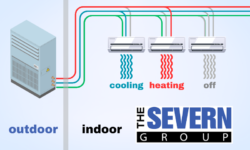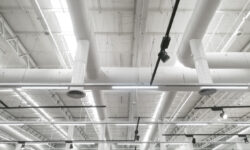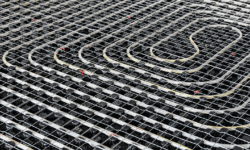As a business owner or facility manager, you want to make sure your commercial building is safe and comfortable for its occupants. One vital aspect of achieving this comfort is effectively managing HVAC systems, especially during peak seasons. As the seasons change, so do the demands on your commercial HVAC system. Whether it’s the scorching heat of summer or the bitter cold of winter, maintaining a comfortable indoor environment in your commercial space is important for the well-being of employees and customers alike. In this blog, we’ll explore the challenges of managing HVAC during peak seasons and provide valuable tips to ensure your space remains comfortable year-round.
Read more →Heating, ventilation, and air conditioning (HVAC) systems are essential for maintaining comfort in buildings, whether they are residential, commercial, or industrial. However, they can also be one of the largest energy consumers in these structures. As a result, the quest for more energy-efficient HVAC solutions has led to the development of Variable Refrigerant Flow (VRF) HVAC systems. This blog post will explore how VRF HVAC systems work and how they maximize energy efficiency to reduce operational costs.
Read more →Anyone who owns a commercial building knows that ductwork is an integral part of the property’s operations. In order to operate at maximum efficiency, your HVAC ductwork needs to be designed, sized, and installed correctly. Proper duct size is all too often an overlooked feature of commercial HVAC systems. The role that duct sizing and material play in maintaining a safe, comfortable environment should not be underestimated. Having the right size and material for your ducts will maintain comfortable conditions, improve indoor air quality, minimize energy losses, and lower your heating and cooling bills, as well.
Read more →Buying a new commercial HVAC system is one of the most important purchases you can make for your business. It’s your responsibility to choose an HVAC system that provides seamless comfort for clients, customers, and employees. However, choosing the right commercial HVAC system can be overwhelming with the number of choices to pick from. For this reason, you must understand what factors to consider when looking for a new HVAC system.
Read more →Traveling by airplane, driving your car, or engaging in a recreational pursuit can expose you to varying degrees of environmental pollution. While it might be hard to avoid flying or driving, indoor air pollution is one risk you can avoid altogether. Poor indoor air quality has become increasingly concerning, especially over two decades. Growing scientific evidence suggests that indoor air can harbor more contaminants than outdoor air, even in industrial zones. Further, research studies indicate that people spend approximately 90% of their time indoors.
Read more →Regular HVAC maintenance in your commercial building is a responsibility you owe to your tenants and employees, but you owe it to yourself, as well. In fact, properly maintained systems can provide up to 25 years of dependable performance. Commercial-grade HVAC equipment such as air conditioners, furnaces, heat pumps, and boilers are very expensive to replace. On the other hand, regular preventative maintenance is relatively inexpensive. From reducing utility costs to improving your air quality, professional HVAC maintenance is financially advantageous and time-saving.
Read more →As stated by the CDC, HVAC systems can be a big source of indoor pollutants. Improperly maintained systems can lead to the introduction of microbes into an indoor air system. Improper operation and maintenance of HVAC systems can seriously impact a building’s indoor environmental quality (IEQ) and be the cause of other detrimental issues. A Severn Group service contract is a cost-efficient, convenient way to ensure a building’s HVAC system is properly maintained. The following five reasons explain why a service contract is the right choice.
Read more →Maintaining a comfortable indoor climate in commercial buildings is an overhead most operators and owners need to revisit often. According to the U.S. Department of Energy (DoE), radiant heating is a good option compared to other heating systems like forced-air and baseboard heating. If you’re considering the benefits of radiant heating for your commercial property, take a moment to review some important facts.
Read more →We have gone into what geothermal systems are before. But, to recap, these systems work similarly to other HVAC structures except geothermal utilizes the ground rather than air. What we haven’t discussed is how geothermal heat pumps (GHP) work in large buildings. Since incorporating green technology is getting more popular so are commercial geothermal heat pumps. Not only are they eco-friendly they also offer low operating costs. So, for this article, let’s talk about the three main benefits of incorporating GHPs into your building.
Read more →In 2015, chilled beam technology was projected to grow nearly double by 2020. Now projections are showing the U.S. will contribute around 28% in chilled beam system demands by 2026. This is largely due to energy efficiency regulations in North America. Currently building energy consumption is about 40% of the total energy consumption in the U.S. As a push toward lower carbon emissions continues to grow, it stands to reason so will technologies that reduce energy consumption. Chilled beams offer major benefits in energy efficiency.
Read more →









